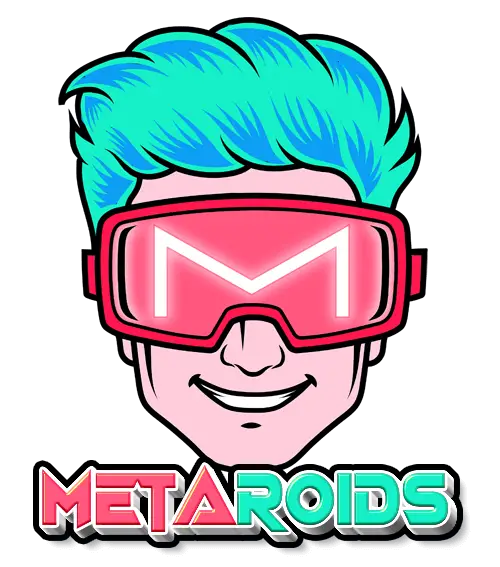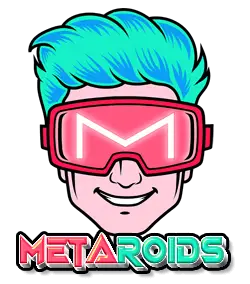Whether you’re new to crypto or have been passively stalking the market for a few months, you’d probably have heard of the concept of decentralization. But you might be wondering, what makes decentralization important for blockchains and crypto?
Cryptocurrency is not a new concept. In fact, several cypherpunks in the 90s had attempted to create electronic cash but none of them got far.
Why? It turns out that a vital element was missing in their system: decentralization.
It wasn’t until Bitcoin was deployed that the world had finally witnessed a truly decentralized electronic cash system live.
11 years of continuous operation and the Bitcoin network has been up 99.99% of the time. Can you say the same for financial institutions?
No! They open between 9 am and 5 pm, excluding Saturdays and Sundays. And holidays. That’s a lot of downtime that Bitcoin users want to avoid.
Apparently, decentralization is one of Bitcoin’s secret sauce. It made other amazing features possible including security, immutability, inclusiveness, and many more.
The founder/founders of the digital currency stressed the importance of decentralization in cryptocurrencies in several anonymous blog posts over the internet.
In order to understand the benefits of decentralization, we need to take a short Bitcoin history lesson.
Why Bitcoin Was Created
Bitcoin was created by an unknown entity by the name of Satoshi Nakamoto.
Not much is known about this entity except that he/she/they introduced Bitcoin to the world back in 2009 and then disappeared after a year, never to be heard again.

Bitcoin was introduced as a peer-to-peer electronic cash system. It’s purpose was to allow people to send and receive money online without using third-parties.
Third parties can either be financial institutions like banks or payment processors like PayPal.
Why don’t we want them?
Well, third-parties work on a trust-based model, which has inherent weaknesses. The most obvious of which is that you have to trust that these third-parties like banks or PayPal will do the right thing for you.
Basically, you are giving them control over your finances. And, they have the power to reverse your payments or freeze your money.
In the words of Satoshi:
The root problem with conventional currency is all the trust that’s required to make it work. The central bank must be trusted not to debase the currency, but the history of fiat currencies (like Dollar, Peso, etc.) is full of breaches of that trust. Banks must be trusted to hold our money and transfer it electronically, but they lend it out in waves of credit bubbles with barely a fraction in reserve. We have to trust them with our privacy, trust them not to let identity thieves drain our accounts.
Satoshi Nakamoto
So how do we go beyond the need for trust? How do we get a trustless system?
You got it. ?
Decentralization!
Now, Bitcoin wasn’t the first digital cash. Various cypherpunks have created e-cash precursors since the early 90s.
Before Bitcoin, there was DigiCash, B-Money, Bit-Gold, Hashcash, and perhaps a lot more that were unidentified.
Most of these precursors were either centralized or partially centralized. Because of that, it couldn’t work.
Until Bitcoin came along and lead the digital currency revolution.
Benefits of Decentralization
No single point of failure
A single point of failure is essentially a part of a system that, if it fails, the entire system stops operating. In other words, if it goes down, the whole thing goes down with it.
Can you name single points of failure in the real world? There are lots!
| System | Single Point of Failure |
| Financial Markets (exchanges of stock, Forex, ETFs, etc.) | The CEO and other people that run the company (NYSE, Nasdaq, etc.) |
| Governments | President, dictator, legislators, etc. |
| PayPal’s payment system | PayPal company |
In the case of Nasdaq and PayPal, a single letter from the SEC could alter any of their rules or decisions, and they would have no choice but to adhere.
It doesn’t matter if their customers are happy or not. If they resist they’ll be forced out of business. We’ve seen this happen many times.
Even a slight pressure from the SEC watchdogs can greatly influence decisions of mega corporations.
Visa, Mastercard, eBay, and Stripe all backed out of the Libra association — an organization that support Facebook’s planned cryptocurrency — when it started having tensions with the SEC.
Through decentralization, cryptocurrency and blockchain won’t have this problem because there is no central controller. Nada! De-centralized.
Immutability of records

Decentralized blockchains like the Bitcoin network have immutable records. For simplicity’s sake let’s just use Bitcoin as an example.
Bitcoin’s transaction records are unforgeable once they are added to a new block.
This is made a possible by two things:
- A decentralized peer to peer network
- Proof of Work mining
For some of you that don’t understand mining don’t worry you don’t need to know that for now.
Just understand that as long as the majority (at least 50%) of the users of a network are not coordinating to alter it, the records are impossible to tamper.
Censorship-resistance
Censorship can be applied to Bitcoin but it’s more suited for other decentralized networks like Memo, for example.
Memo is a decentralized social media platform, similar to Twitter. You could post whatever you want including porn, political opinion and other controversial stuff.
Why? Because posts are all stored on a decentralized blockchain record, and therefore, immutable.
Through decentralized blockchains, freedom of expression can flourish.
Inclusiveness

Inclusiveness can be considered as an extension of censorship-resistance.
All sufficiently-decentralized blockchains are open source. Therefore, anyone can join the network.
The blockchain doesn’t care who you are, where you’re from, what you’ve done. If you want access, you’re welcome. No one can stop you.
And this can’t be possible without decentralization. Centralized blockchains, like the ones banks and enterprises are using, don’t have this feature. They require an admin to allow you to join.
Without decentralization, cryptocurrency loses its edge.
Meritocracy
Meritocracy is a system in which decision-making power is vested on the basis of achievement, intelligence and effort.
Unlike semi-centralized blockchains (I won’t mention names), sufficiently decentralized blockchains are not prone to judge by wealth or social class.
Rather, they’d be incentivized to bet on the best candidates for improving the overall system through a decentralized voting process.
And even then, their political power is limited. They can only submit proposals and it’s up to the people if they want to accept them or not.
In the Bitcoin network, two cypherpunks are leading developers — Peter Todd and Adam Back. Adam is the creator of Hashcash, the Bitcoin precursor I talked about earlier, so he knows what he’s doing.
Politicians or bigshot businessmen cannot significantly influence cryptocurrency development. Unless said politician/businessman is a phenomenal developer who has a great track record of successful projects.
This level of meritocracy will not be sustainable if a blockchain is semi-centralized. Vested interest of whoever has the most influence in the blockchain could likely hamper or sabotage its development for his/her own gain.
Allows users to own their data

Centralized platforms like Facebook, Twitter, and Google use your data for their own profit. That’s their bread and butter.
Of course, you also get some benefits like personalized search results, relevant posts in your newsfeed, etc. But your data is in their hands, and you have to trust them not to compromise it.
Should we trust them?
Well, here are some of the top personal data blunderers in history:
- Yahoo — 3 billion email accounts exposed due to a hack
- First American Financial Corp. — 885 million financial records exposed due to poor security
- Facebook — 540 million user data leaked due to poor security
And considering these companies are worth billions, this is unacceptable. Yet, none of them went to jail. Well, Facebook paid $5 billion in fines but, its net worth is somewhere around $600-$700 billion so that’s nothing.
With decentralized crypto platforms, you don’t have to worry about having your data stolen because it stays with you. No intermediary can harvest it.
But this goes beyond social media. It includes money because in crypto, money is data.
When your money is in the bank, trust me, you don’t own it. If you did, banks wouldn’t be able to freeze it nor prevent governments from seizing it. But they can.
Conclusion
There are over 5,000 digital currencies in 2020. A huge chunk of them is either centralized or pseudo-centralized. For that reason, we should stress the importance of decentralization in cryptocurrency projects.
But, decentralization is merely a means to an end. What we want is censorship resistance, inclusiveness, meritocracy, immutability, and all the other benefits that come with it.
Join our newsletter as we build a community of AI and web3 pioneers.
The next 3-5 years is when new industry titans will emerge, and we want you to be one of them.
Benefits include:
- Receive updates on the most significant trends
- Receive crucial insights that will help you stay ahead in the tech world
- The chance to be part of our OG community, which will have exclusive membership perks


